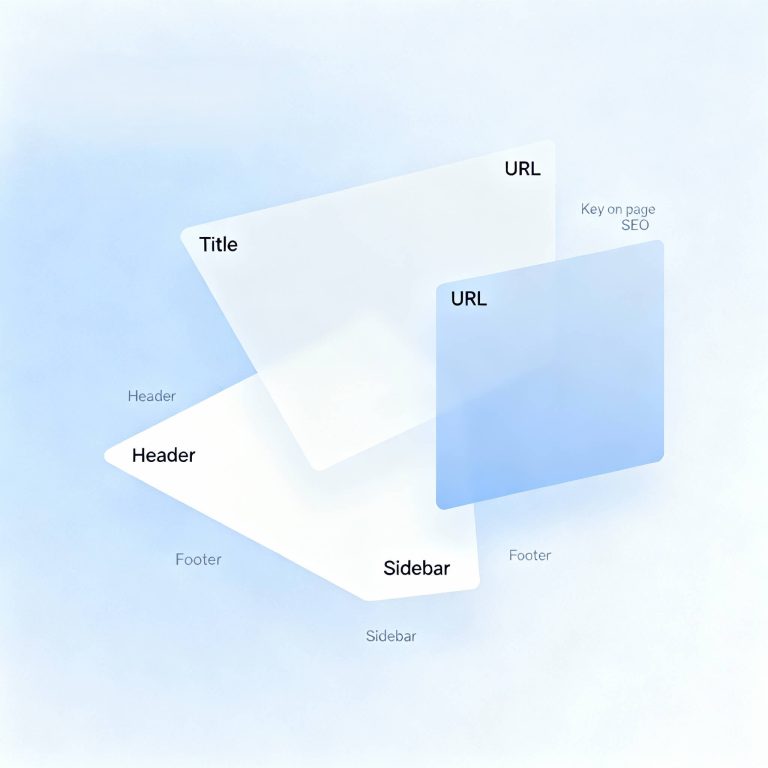Long Tail Vs Short Tail Keywords For Therapists

You may have heard from many SEO’s about long tail keywords and short tail keywords. What are these keywords, what is the difference between the two, how to find such keywords, which type of keywords are more relevant for therapist SEO, all of such questions I will cover in this post.
If you have read my post on On-page SEO for therapists website, you have learned about the importance of optimizing website around different types of keywords and also learned about the intent behind the various keyword types and how they effect the conversion cycle of a potential client.
In this guide, I am going further and explaining about long tail and short tail keywords for therapists.
Long tail keywords
Long tail keywords are those keywords which are more than 4+ words in length, have low competition, and are very specific in context. For example, what is the location of xyz clinic in Phoenix, TX? This is a long form 4+ words in length and asking a very targeted question.
Short tail keywords
Short tail keywords are those keywords which are very short in length and mostly commercial in nature. For example, Therapy Phoenix, EMDR Therapy Phoenix.
These are short in length generally less than 3 words and are conversion focused.
Both these type of keywords play their role in bringing visitors to the counseling website. They both have their own pros and cons. Short tail keywords are high in popularity whereas long tail keywords have low search volumes but highly targeted.
Short tail Vs. Long tail keyword examples for local therapist websites
As I mentioned above short tail keywords are of 1-3 words, very broad, high in volume, and highly competitive whereas long tail keywords are those keywords which are 3+ words long, more specific & local, lower in competition and has higher intent.
To give you example of short tail vs long tail keyword for local therapist website, I am taking anxiety therapy website as an example. For an anxiety therapy website, short tail and long tail keywords can be:
Short-Tail Keywords (1–2 words)
These are broad, high-volume, but competitive.
- anxiety therapy
- anxiety counselor
- therapist near me
- anxiety treatment
- Houston TX therapist
Long-Tail Keywords (3+ words, more specific & local)
These are lower competition and higher intent perfect for SEO.
- anxiety therapist in Houston
- best anxiety therapy near me
- licensed anxiety counselor in Houston TX
- therapy for anxiety and panic attacks in Houston
- online anxiety therapy for adults in Houston
- affordable anxiety therapist for women in Houston
- cognitive behavioral therapy for anxiety in Houston
- how to find an anxiety therapist in Houston
Short tail keywords being more competitive requires more backlinks and site authority to rank whereas long tail keywords requires less backlinks and site authority.
When you write in such a way that the centerpiece topic or what is called topical authority is understood by the search engines, the page starts ranking for both short tail and long tail keywords.
Short tail and long tail keywords have their own role in the SEO process of a counseling website.
When optimizing a therapist website both type of keywords are used at different places. For example – When optimizing a service page on “cognitive behavioral therapy for anxiety in Houston” the main keyword can be:
Title – Cognitive Behavioral Therapy (CBT) For Anxiety in Houston, TX.
Heading – Heading can be CBT Therapy Houston For Anxiety, TX.
You see both short tail and long tail keywords are optimized in the same query. In the title tag you can see that the long tail keyword is Cognitive Behavioral Therapy (CBT) For Anxiety in Houston, TX whereas short tail keywords are Cognitive Behavioral Therapy, CBT For Anxiety in Houston.
Similarly in the heading, CBT Therapy Houston For Anxiety, TX is a long tail keyword whereas CBT Therapy Houston is a short tail keyword.
When you write wholistic content on the topic using proper neural network of words and terms, the search engine understands that you have wrote on a particular subject. And when you build your therapist website’s authority the Google and other search engines will start showing you for both type of queries on their search results page as per the competition and the PageRank of the website.
Not only for the optimized keywords, the search engines will then start sending you clicks from many other variations of those keywords like CBT for Anxiety Houston, Houston CBT, etc.
That means you don’t have to optimize the page separately for different type of keywords. By just writing in a wholistic way whose centerpiece topic search engines can understand will help you rank for both short tail and long tail terms.
Now let’s see how to find short tail and long tail keywords for your therapist website.
There are various ways to find short tail and long tail keywords. Some are free and some are paid. Let’s look at the free methods.
Google Autocomplete
Google Autocomplete is a search engine feature provided by Google. When you type in your main therapy service in the Google search bar, the shortest keywords you will get are short tail keywords. When you press space after these keywords the other keywords that will come are long tail keywords.
To use Google’s AutoComplete feature start typing your main therapy service into the Google search bar. Some suggestions will pop up. What are those initial suggestions that pop up? Those are your short tail keywords that are usually just one or two words like “anxiety therapy” or “couples counseling.”
Now hit the space bar after one of those keywords, and watch what happens. Google will start suggesting longer, more specific phrases. These are your long tail keywords, and they’re gold for targeting specific client needs. For example, “anxiety therapy” might expand to “anxiety therapy for teens near me” or “anxiety therapy techniques for beginners.”
Answer the Public
Answer the public is a SEO keyword research tool that helps find long tail keywords from a seed keyword.
When you type your seed counseling keyword and press enter, the tool provides you a big list of keywords which are questions, prepositions, related terms, etc.
Google Search Console
Google Search Console is a website performance tracking tool provided by Google. GSC provides report on various data sets like impressions, number of clicks, keywords, average ranking position, etc.
Unlike the other tools we’ve discussed, Google Search Console isn’t about guessing what keywords might work. Instead, it reveals the real keywords people are using to find your site right now. Once you’ve connected your website to GSC, you’ll get access to reports showing all sorts of useful data: how many times your site appeared in search results (impressions), how many people actually clicked through to your site, which specific keywords triggered those appearances, and where you’re ranking for each term.
By filtering keywords in GSC you can find many long tail and short tail keywords.
For example – you wrote a blog post about stress management, and GSC reveals that people are finding you through “stress management techniques for working parents”, a long tail keyword you hadn’t specifically optimized for. In that case what you can do is optimize that page around that keyword too. May be add the keyword in a heading and few times in the content.
Semrush
Semrush is a paid SEO tool which is also used to do keyword research also. When you type your main keyword along with the location in the Semrush keyword explorer, the tool then provides you a list of keywords which are both short tail and long tail.
The process is simple: type in your main keyword along with your location into Semrush’s keyword explorer. Maybe something like “family therapy Austin” or “trauma counseling Seattle.” The tool then generates an extensive list of both short tail and long tail keywords, complete with valuable data like search volume, keyword difficulty, and competition levels. This gives you a much clearer picture of which keywords are worth targeting and which ones might be too competitive for a newer practice.
Final Thoughts
Short tail and long tail keywords both have their own role in bringing visitors organically from search engines. When the website gains trust and authority through backlinks and other Off-page SEO methods, the search engines give more visibility for variations of a single keyword.
Long tail and short tail keywords are not optimized separately. It all depends on the competition of the keyword and your website authority.
When your website will be new or low authority, you will mostly rank for long tail keywords but as your domain age and gains authority, your website also start showing for short tail keywords.
Through this blog post, I hope you understood the concept of long tail vs. short tail keywords for therapist website.


